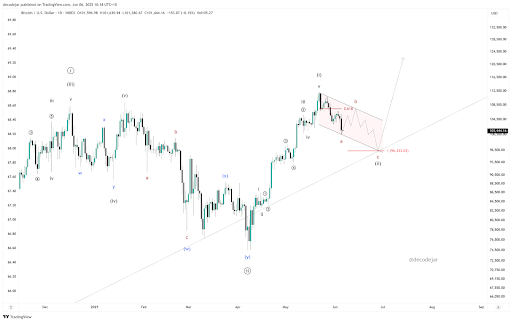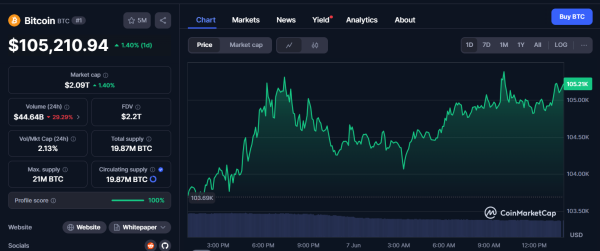Synopsis
The U.S. faces pivotal events with the September FOMC meeting and November elections, influencing traditional and crypto markets. Bitcoin’s highs and new ETFs signal mainstream acceptance, while Gen Z and Millennials push for crypto-friendly policies, impacting election dynamics and regulatory focus.
The U.S. is currently at the centre of significant factors that could impact financial markets. With the highly anticipated FOMC meeting in September and the upcoming November election, all eyes are on the U.S. These events hold considerable weight, not only for traditional markets but also for crypto enthusiasts hoping for a crypto-friendly legislation to ease regulations.
This year has already been a landmark period for crypto. Bitcoin reached new all-time highs, and the approval of spot Bitcoin and Ether exchange-traded funds (ETFs) in the US marked significant steps toward mainstream acceptance. These milestones highlight the growing integration of digital currencies into the global economy, setting the stage for heightened political and regulatory attention as the election nears.
A crucial element in this election cycle is the growing influence of younger voters, particularly Gen Z and Millennials, who make up a significant portion of the electorate. A survey by Stand With Crypto Alliance indicates that over half of these voters are likely to support candidates advocating for crypto-friendly policies. In swing states, 21% of voters consider crypto policies important, with a notable portion identifying as pro-crypto. This demographic shift is pushing political candidates to address crypto more directly, recognizing its importance to a key segment of the electorate. As a result, crypto policies have become a central issue for many voters, amplifying their impact on the election outcome.
Crypto Tracker![]() TOP COIN SETSBTC 50 :: ETH 50-8.32% BuyCrypto Blue Chip – 5-8.56% BuySmart Contract Tracker-10.26% BuyDeFi Tracker-15.98% BuyWeb3 Tracker-16.15% BuyTOP COINS (₹) BNB45,016 (0.59%)BuyTether84 (-0.06%)BuyEthereum211,650 (-0.34%)BuyBitcoin4,964,133 (-0.4%)BuySolana11,566 (-1.26%)BuyWe see that candidates’ positions on crypto will likely shape the industry’s future. Former President Donald Trump has recently shown increased support for crypto by accepting digital currency donations and advocating for a strategic Bitcoin reserve, despite earlier scepticism. Robert F. Kennedy Jr. has also endorsed Bitcoin as a symbol of democracy and financial freedom, further highlighting the potential for pro-crypto policies under his leadership. Kamala Harris, who is running from the Democratic Party after Biden stepped down also mentioned that she too supports emerging technologies and assets such as crypto. These shifts show that the election could bring about a more favourable regulatory environment for cryptocurrencies, depending on which candidate prevails.
TOP COIN SETSBTC 50 :: ETH 50-8.32% BuyCrypto Blue Chip – 5-8.56% BuySmart Contract Tracker-10.26% BuyDeFi Tracker-15.98% BuyWeb3 Tracker-16.15% BuyTOP COINS (₹) BNB45,016 (0.59%)BuyTether84 (-0.06%)BuyEthereum211,650 (-0.34%)BuyBitcoin4,964,133 (-0.4%)BuySolana11,566 (-1.26%)BuyWe see that candidates’ positions on crypto will likely shape the industry’s future. Former President Donald Trump has recently shown increased support for crypto by accepting digital currency donations and advocating for a strategic Bitcoin reserve, despite earlier scepticism. Robert F. Kennedy Jr. has also endorsed Bitcoin as a symbol of democracy and financial freedom, further highlighting the potential for pro-crypto policies under his leadership. Kamala Harris, who is running from the Democratic Party after Biden stepped down also mentioned that she too supports emerging technologies and assets such as crypto. These shifts show that the election could bring about a more favourable regulatory environment for cryptocurrencies, depending on which candidate prevails.
Did you Know?
The world of cryptocurrencies is very dynamic. Prices can go up or down in a matter of seconds. Thus, having reliable answers to such questions is crucial for investors.
View Details »Beyond the election, macroeconomic factors such as potential Fed rate cuts also play a significant role in the crypto market. When the Fed cuts interest rates, it typically lowers the cost of borrowing, stimulating economic activity and enhancing investor risk appetite. Lower interest rates often lead investors to move funds from traditional savings accounts and bonds into alternative assets like crypto or metals aiming to generate higher returns.
Historically, the crypto market has reacted positively to rate cuts. Recent statements from Fed Chair Jerome Powell indicated a more flexible approach to monetary policy, which has already led to significant gains in the crypto market, with Bitcoin reaching new highs. However, the relationship between rate cuts and crypto is not straightforward and depends on various factors. However, as of now the rate cut of 25 basis points remains most likely in September.
Long-term investors might remain focused on the fundamental potential of cryptos, viewing them as a hedge against inflation and the devaluation of fiat currencies due to expansive monetary policies. Giant companies like MicroStrategy, Tesla, and others have invested in Bitcoin and with Bitcoin spot ETFs approval, institutional investors have also become keen in adding Bitcoin to their portfolio, additionally, there is also evolving regulatory clarity across the globe with regard to crypto, with this adoption and demand is likely to surge in the coming years. Additionally, if there is a precedent set on crypto or Bitcoin in the US, the suit is likely to be followed by the rest of the countries.
As the 2024 U.S. presidential election approaches, the interplay of political outcomes and macroeconomic factors will be pivotal in shaping the future of the cryptocurrency market. Regulatory changes stemming from the election could foster digital asset growth, while Fed rate decisions will influence market liquidity and investor sentiment. Together, these elements create a promising environment where cryptocurrencies could benefit from a favourable political landscape and supportive economic policies. As voters decide the nation’s political direction, they also influence the trajectory of the global cryptocurrency market, making this election cycle critical for investors and industry stakeholders alike.
(The author Edul Patel is CEO & Co-founder of Mudrex, a Global Crypto Investment Platform. Views are own)
(Disclaimer: Recommendations, suggestions, views and opinions given by the experts are their own. These do not represent the views of Economic Times)


